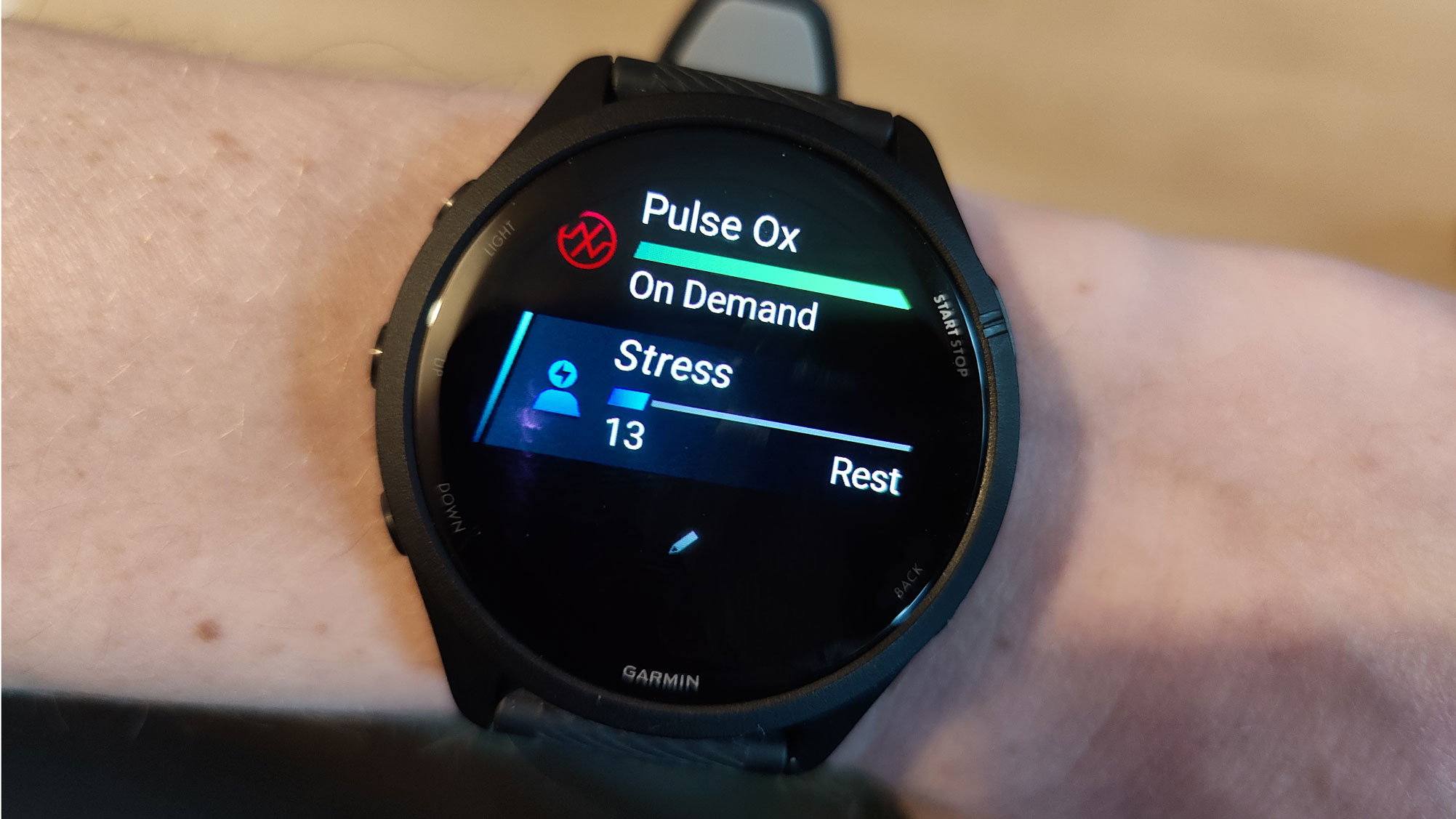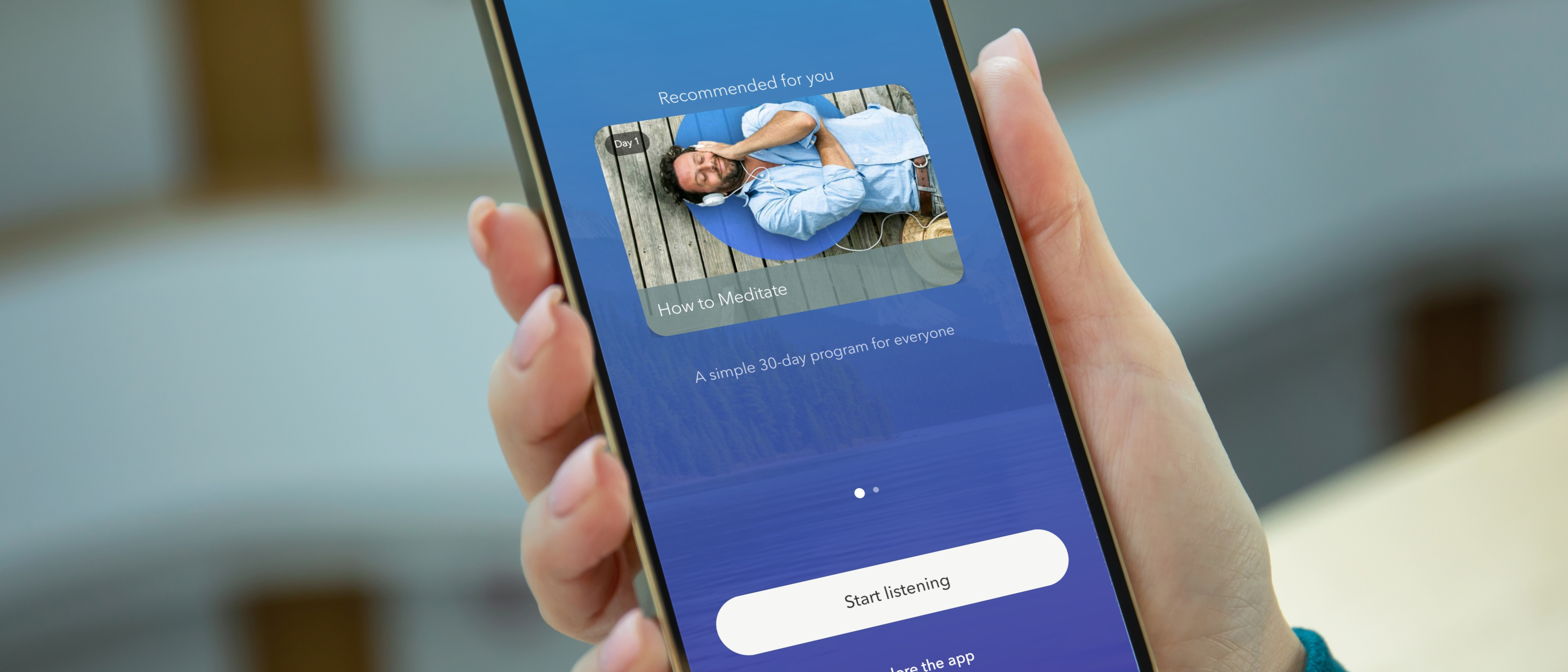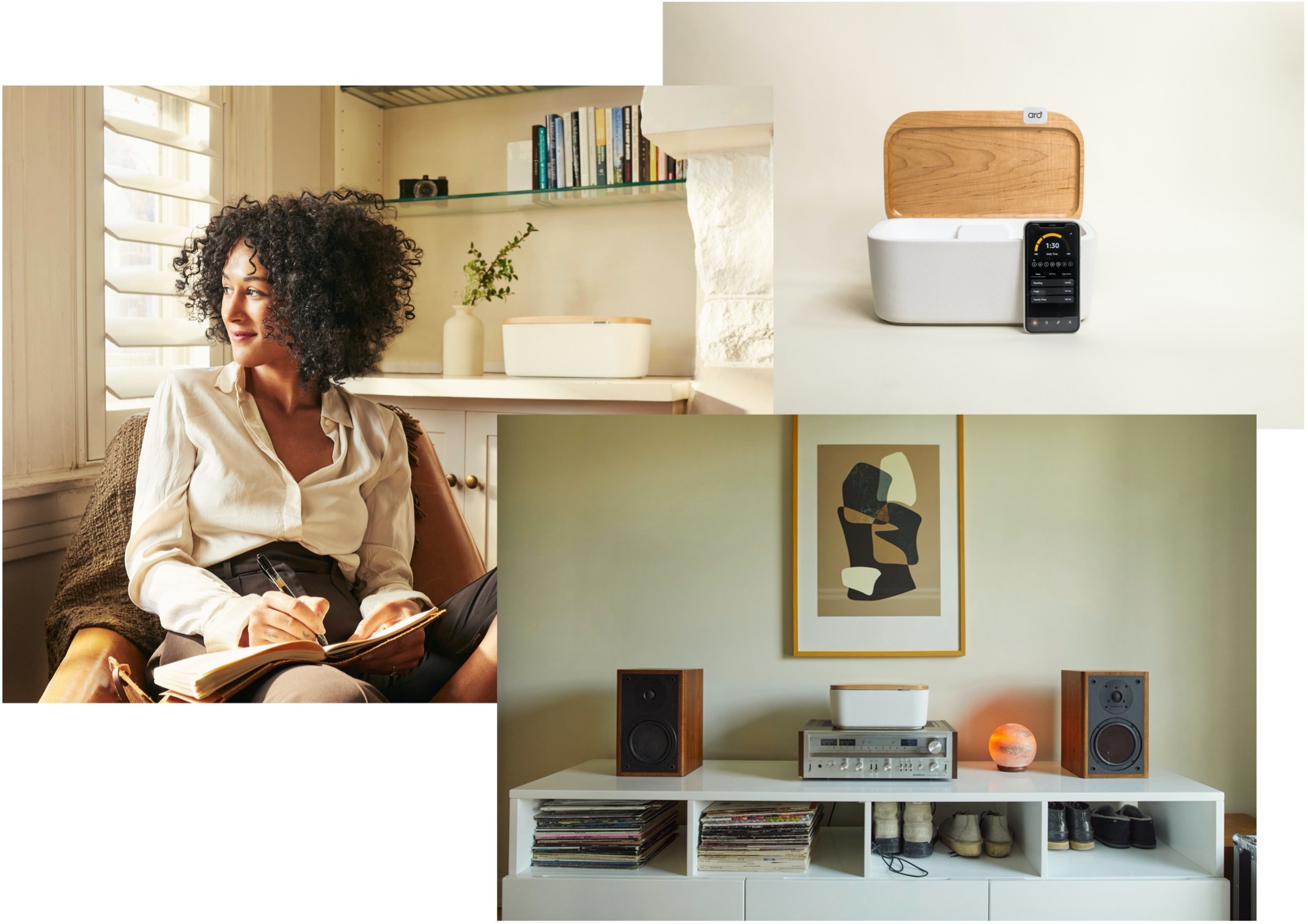I’m sick of the wellness industry monetizing every aspect of my life
Even 'mindfulness' tech wants me to be constantly online

Let’s get something out of the way first: this article is going to be a little hypocritical. I review and recommend fitness and wellness tech for a living, and there are some amazing advances in the field that can help you train smarter and recover more efficiently. But seeing an ad for a new home device made me realize that the constant clamor to track and record every waking moment of our lives is beginning to wear me down.
I’m always using the best smartwatches and best running watches to log my runs and workouts, both during reviews and in my everyday life. As I’m currently training for a marathon, I’m very conscious of pace, distance, calories burned, and so on, and smartwatches help to keep me on track. They also monitor my sleep for the purposes of adequate muscle recovery, and informing me whether my body is recovered enough to take on another long run. Smartwatches also keep me connected – perhaps too connected – with Whatsapp and Slack notifications on my wrist, among other features typically used by the terminally online.
Outside of my work obligations, I’m also a subscriber to the Calm app, as it provides loads of guided meditations (a different 10-minute ‘Daily Calm’ meditation is released every morning), alongside soundscapes and sleep stories. Listening to Levar Burton read me detailed descriptions of our solar system, or Eva Green’s lilting French-tinged RP accent narrating a nighttime walk, is a great way to unwind and fall asleep. I use it a lot, and as you can imagine, the app records streaks if I use it every day, showing white circles in a monthly calendar to mark the days I’ve ‘made time for myself’.
However, sometimes I need to try the guided meditation services that live on other devices in order to review them properly, which means I don’t use Calm for a day, losing my streak. What’s more, sometimes I’ll even try a breathing exercise or meditation without using my phone (shocker!) which means, again, I don’t log Calm for the day, effectively losing my streak. When I look at my monthly calendar, the white circles aren’t there, prompting me to wonder if my unlogged mindfulness sessions really count.
Then I realize the concept of meditations not counting because they’re not recorded is absolutely ridiculous. Of course it counts. What’s more, the whole concept of mindfulness is to make space from worries like this, and unplug from the day. I say 'unplug' there very deliberately, because Calm, for all its soft blue tones and reminders to take time for myself, wants me to use it constantly, and gamifies the concept of mindfulness.

It’s not the only culprit, either. Removing my tech-reviewer’s blinkered visor for a moment, the entire health, fitness and wellness industry operates with similar gamification strategies. Apple, Garmin, Fitbit, Oura, Amazfit, Samsung, Huawei, Strava… they all do it. Once you’ve completed a run, or a meditation, or a yoga class, you get a nice, shiny thumbs-up from your app of choice, a dopamine hit to keep you coming back. Your attention is a commodity, and all these competing brands want you locked into their own ecosystem rather than a competitor’s, because once you’re locked in, they can sell you more stuff. Another year’s subscription perhaps, or a new premium device. There’s so much electronic noise in our lives, and even your attempts to quiet that noise through exercise, meditation and sleep is logged, quantified and monetized.
The thing is, exercise, meditation and sleep are some of the few things left in life that are free for everyone to enjoy. Sure, if you’re a runner you’ll need to buy the best running shoes to help you pound the pavements, and if you’re a lifter you’ll need a gym membership, but if you just want to start exercising, you can pull on some comfortable clothes, go to the park and do 10 squats, 10 push-ups, and hold a plank for 30 seconds. Do that three or four times, and you’ve completed a perfectly good workout and gotten a bit of fresh air. No app needed.
Mindfulness is the same. You just sit down on a cushion or a chair, set a timer, and listen to your own breathing. At its core, you don’t need a subscription to an app, or a special meditation cushion from Amazon, to make time for yourself. Sure, guided meditations in your earbuds can help you, and I enjoy the content Calm puts out, but you certainly don’t need a “Good job!” notification to feed your rampant dopamine addiction. Yet somehow I keep coming back.
Of course, none of this is new information, but for me, the straw that broke the camel’s back; the piece of tech that made me angry enough to pen this rant about the state of the industry, was when I saw a review of Aro, a service consisting of an app and home device that’s making the rounds this year. Aro is designed to make sure families spend more time looking at each other instead of their phones, and its ‘home device’ is bascially a charging station with a lid.
“The Aro app gamifies the experience of being off your phone,” says the GoAro website. “The app automatically connects to the Aro Home device, measures the time you spend away from your phone, reminds you to take breaks from your phone, shows you data to improve your phone habits, and even lets you connect and compete with others.”
And, of course, there's a subscription, with membership starting at $18 a month for 12 months (around £15 / AU$27), or an upfront payment of $180 for the year in the US (approximately £148 / AU$268).

It’s a $200 box to put your phone in. A gamified, subscription-based way to ensure that even the time you spend away from your phone is logged and monetized. It’s completely dystopian, totally insidious, and probably a great idea from a marketing standpoint that’s going to do very well. In an industry that's based around collecting data, and holding your attention as long as possible, Aro has found a way to encourage you to put your phone away, go outside and touch grass, all while charging you for the privilege. Thanks, I hate it.
If you want to put your phone in a box so that you can take a nap, or go for a walk, you can do it without a companion app. What’s more, I encourage you to get a small, aesthetically appealing plastic or wooden box (I’ve got one that looks like a book, so I can actually slide it into the bookcase and forget about it), and see if it makes a difference to your life. Most phones have screen time logs these days so you can track the difference if you want, and you certainly don’t need to pay $200 (about £165 / AU$298) for something that's basically a bread bin with a charging station inside.
For all its wellness-babble, Aro has hit on something: there's a growing trend to move away from having too many screens in our lives. Screenless smartwatches and smart rings from Samsung and Oura are beginning to compete with notification-spewing conventional smartwatches and fitness trackers. Gen Z is also embracing the anolog aesthetic in a move away from the addictive hold of TikTok, and a search for balance. But I don’t think that trend is going to break the grip that tech companies have on our attention, or divert them from their dystopian mission to collect data on every aspect of our lives in order to better sell us things we don’t need.
I’m not going to stop reviewing wearable tech anytime soon. I love the ease with which technology has been able to help me devise a running plan for long races, access a new guided meditation whenever I want it, and tell me how well I’ve recovered from a strenuous workout. But I refuse to ever, ever pay for the privilege of turning that technology off, and enjoying a few minutes of untracked, unlogged offline life.
Get daily insight, inspiration and deals in your inbox
Sign up for breaking news, reviews, opinion, top tech deals, and more.

Matt is TechRadar's expert on all things fitness, wellness and wearable tech.
A former staffer at Men's Health, he holds a Master's Degree in journalism from Cardiff and has written for brands like Runner's World, Women's Health, Men's Fitness, LiveScience and Fit&Well on everything fitness tech, exercise, nutrition and mental wellbeing.
Matt's a keen runner, ex-kickboxer, not averse to the odd yoga flow, and insists everyone should stretch every morning. When he’s not training or writing about health and fitness, he can be found reading doorstop-thick fantasy books with lots of fictional maps in them.